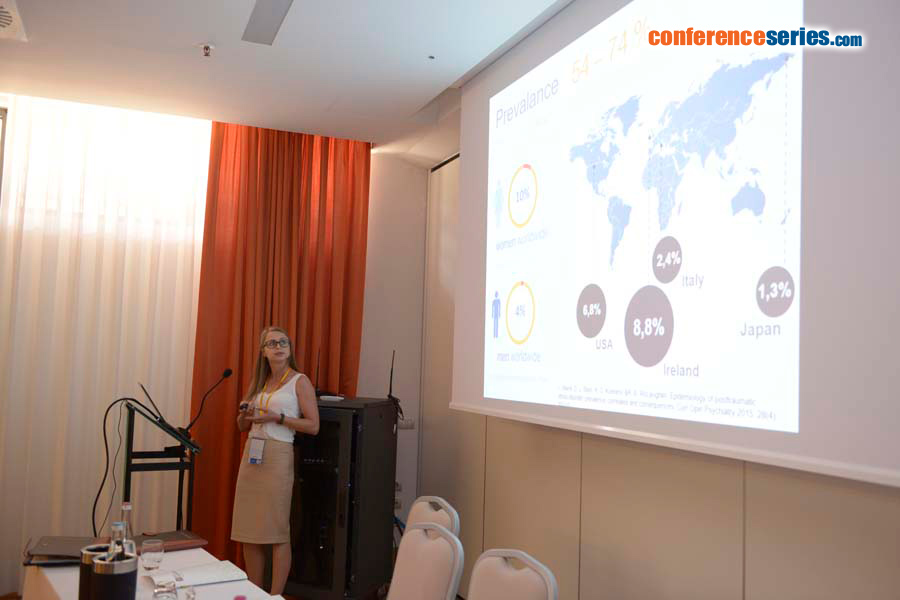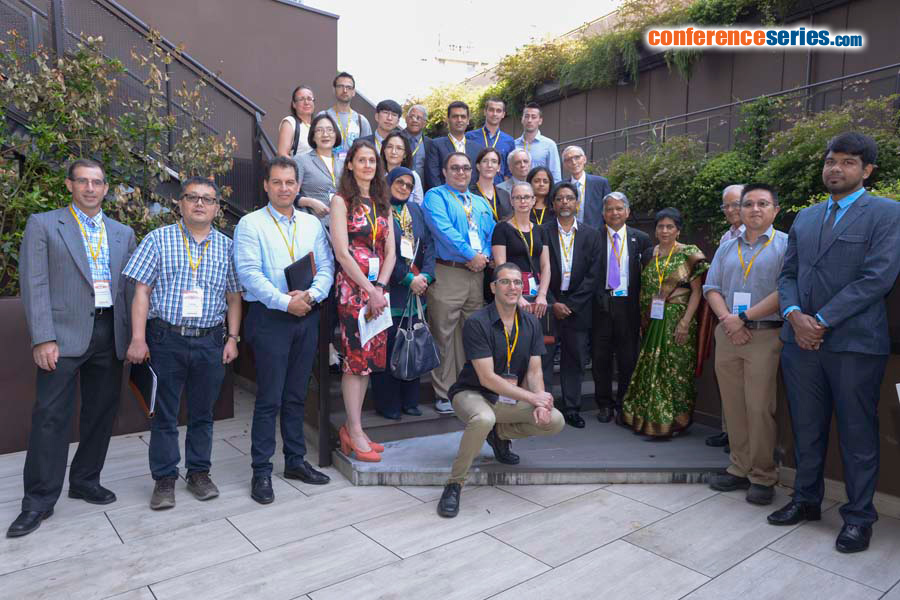
Natalia Malikowska
Jagiellonian University Medical College, Poland
Title: Studying the effectiveness of venlafaxine in mice model of post-traumatic stress disorder
Biography
Biography: Natalia Malikowska
Abstract
Statement of the Problem: Posttraumatic stress disorder (PTSD) is a psychiatric disease, associated with excessive stress and anxiety due to the cues which provoke re-experiencing of traumatic events. Because in PTSD we observe symptoms associated with depression and anxiety, the current pharmacotherapy includes antidepressants (mainly serotonin reuptake inhibitors, SSRIs) and anxiolytic drugs (benzodiazepines). However, these drugs are ineffective in some individuals. Furthermore, adverse effects of the above-mentioned drugs, in particular benzodiazepines, strongly impair patients’ social life. Our study was performed to determine if drugs acting via other neurotransmitter systems might present a higher activity in the mouse model of PTSD. For this purpose we studied the efficiency of venlafaxine, an antidepressant drug that interacts with serotoninergic, noradrenergic and dopaminergic pathways.
Methodology & Theoretical Orientation: The mouse model of PTSD was induced using single prolonged stress protocol (mSPS). The effectiveness of venlafaxine was assessed using the forced swim test (FST) 24 h, 3 days, 8 days, 15 day and 25 days after mSPS. In order to compare the activity of venlafaxine in PTSD model to its antidepressant effect in non-PTSD conditions, we have also performed FST in naïve mice.
Findings: Venlafaxine, when compared to SPS-subjected control group, presented antidepressant activity in the repeated FST, except for the day 8th (Fig. 1). The highest activity was observed on day 25, which correlates with findings that SPS model requires up to 3 weeks to become fully developed. However, when venlafaxine was tested in naïve mice, strong, antidepressant effect was demonstrated.
Conclusion & Significance: Venlafaxine is an effective drug in the mouse model of PTSD, although presented effect increases gradually. PTSD might induce neurobiological changes which cannot be fully reversed by venlafaxine administration, which is confirmed by higher activity of venlafaxine in non mSPS-subjected mice.




